Level up your mass timber IQ & stay up-to-date on industry trends

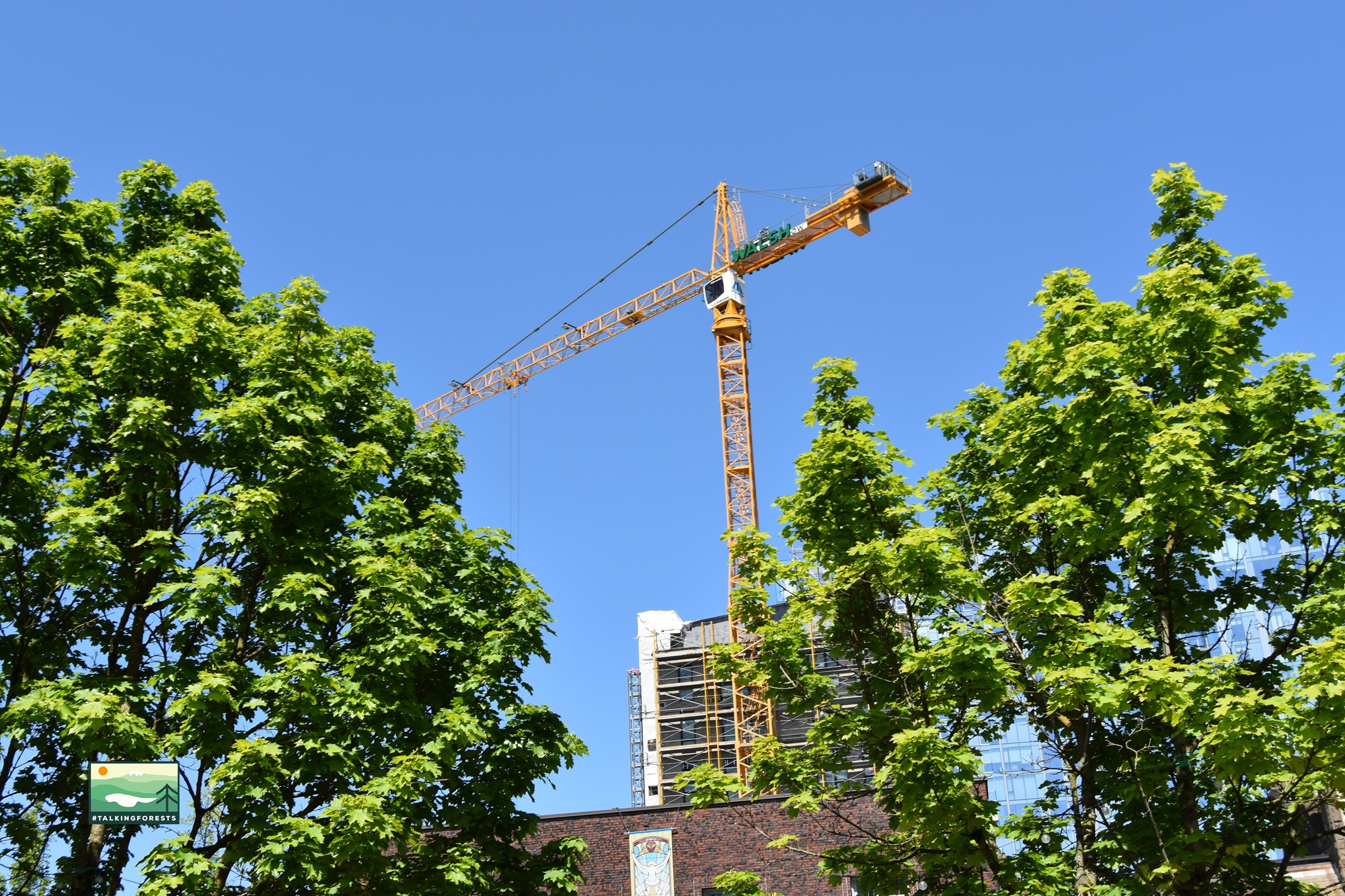
PORTLAND, OR – In a significant stride towards addressing houselessness and championing sustainable development, the Julia West House project in Downtown Portland has officially closed its financing and is now well underway with construction. This 12-story permanent supportive housing (PSH) community is set to become a beacon of innovation and compassion, combining cutting-edge Mass Timber construction with comprehensive services for some of Portland’s most vulnerable residents.
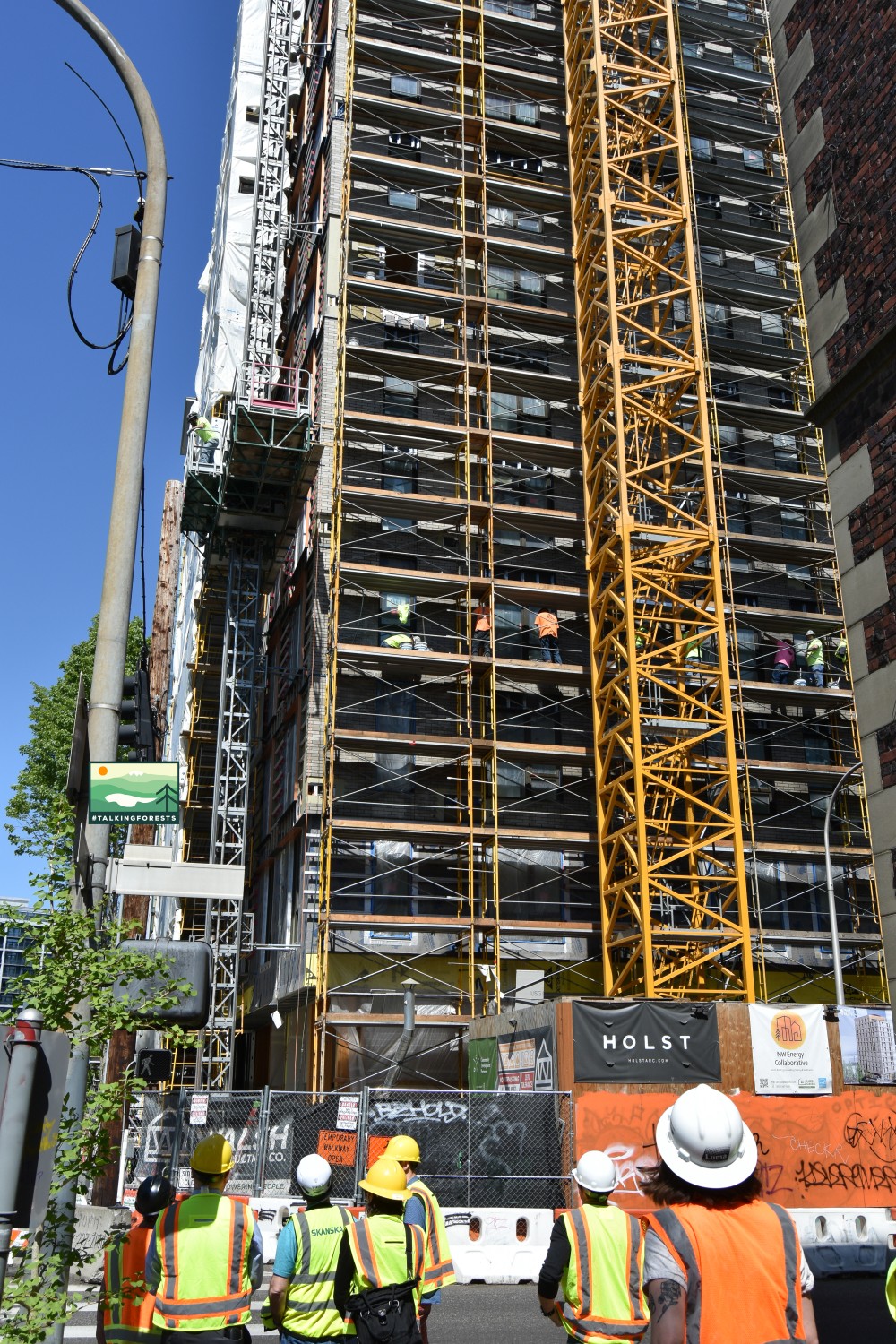
The Julia West House, located in Portland's West End, is poised to be the tallest Mass Timber building of its kind in Oregon once completed. Its construction utilizes a cross-laminated timber (CLT) structure, a choice that not only showcases architectural ingenuity but also significantly reduces the building's carbon footprint compared to traditional concrete or steel structures. This commitment to environmental responsibility is further underscored by the project's pursuit of National Green Building Standard and Energy Star certifications, ensuring long-term sustainability and reduced operating costs.
“In schematic design we provided multiple structural system options including mass timber, PT concrete flat slab, and steel, with the mass timber option winning out based on competitive pricing, faster schedule, lower embodied carbon, and biophilic design benefits.” - Chris Pitt, PE, SE, LEED AP, KPFF Portland Structural
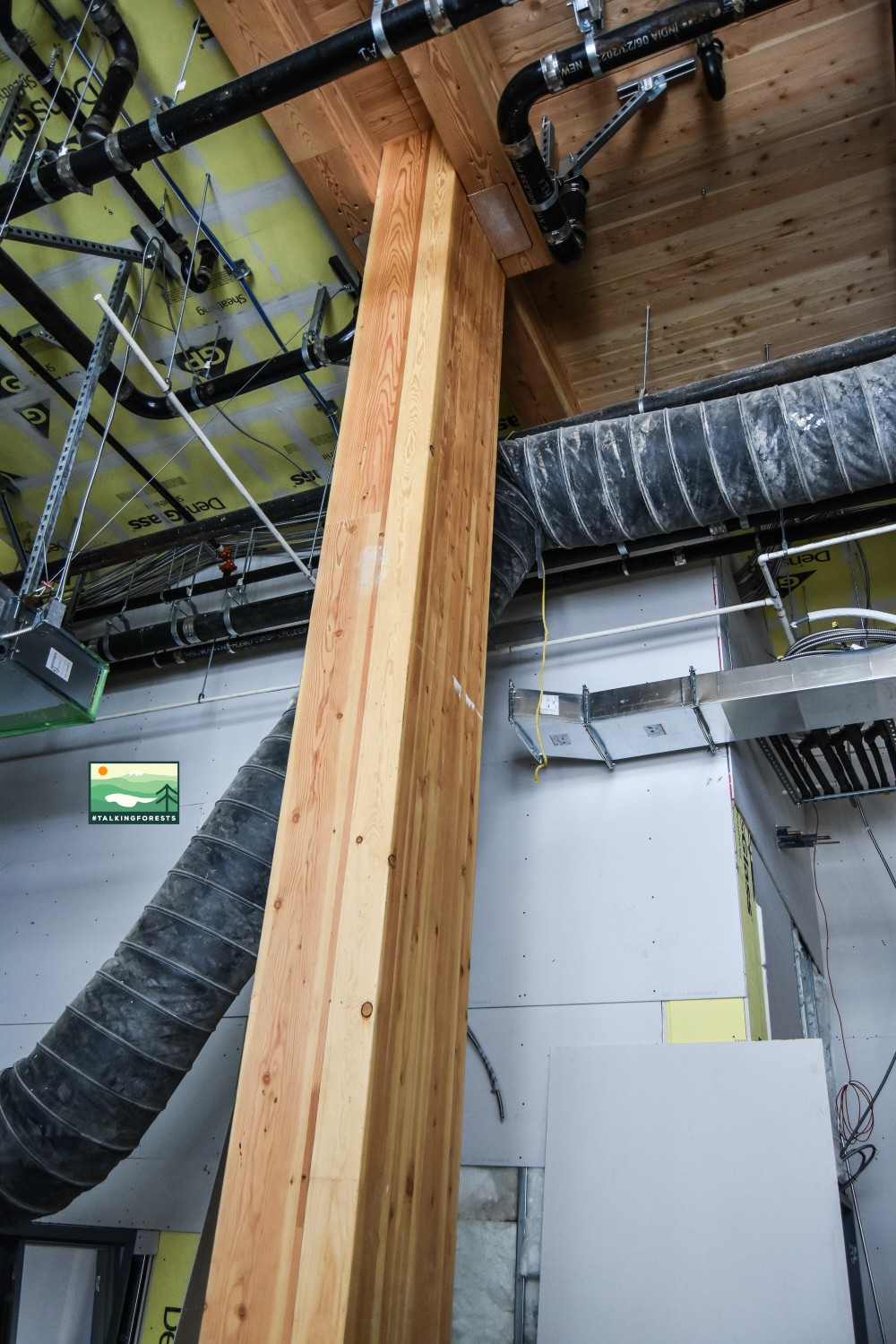
The Julia West will be a new 59,000 sf, 12-story, mass timber (Type IV-B) apartment building located on a 5,000 square foot site. This highlights the project's efficient use of space. The building will offer 90 units, comprising 60 studios and 30 one-bedroom apartments, all designed to provide a safe, stable, and supportive environment. The use of wood extends into the interiors, with exposed CLT ceilings in all units and some exposed timber frames in prominent public spaces, contributing to a warm, natural material palette inspired by the Pacific Northwest's ecology.
“In both form and materials, the building draws inspiration from the local ecology of the Pacific Northwest. We wanted to expose as much timber as possible on the interior, to provide a natural palette. Wood ceilings are left exposed in the units and the columns remain uncovered on the ground floor to give the feeling of walking under a forest canopy. Natural light is also prioritized throughout the building to extend the feeling of warmth and comfort for inhabitants.” - Josiah Henley, Holst Architecture
This design approach also incorporates biophilic design principles and trauma-informed design, prioritizing natural light and creating a calm and comfortable urban living experience conducive to mental health and well-being.
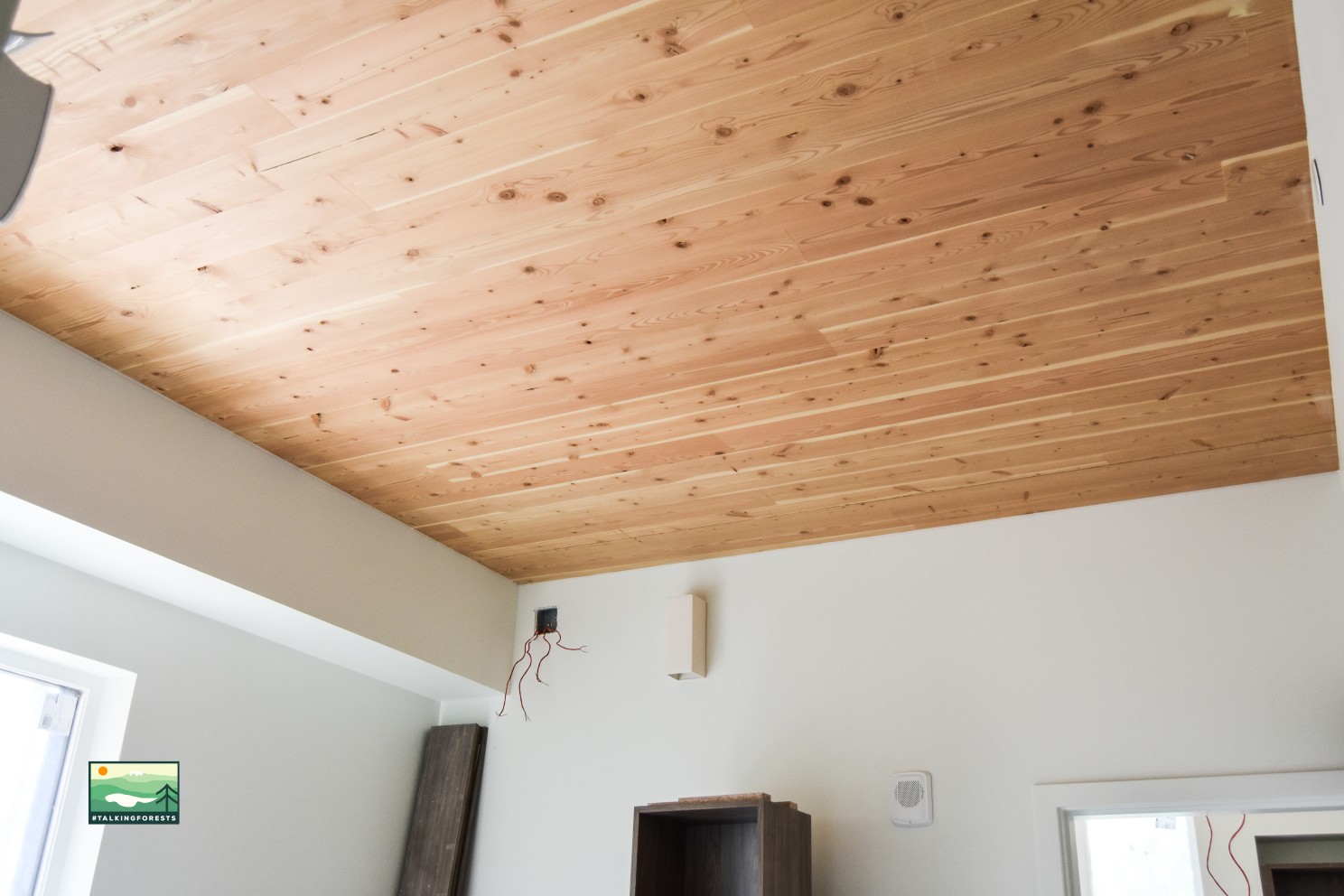
“As the tallest mass timber building in the region, and the first to utilize recent load testing to justify 2-way spanning CLT floor panels without beams in the corridors, we had many detailed conversations with the City of Portland during design and permitting to ensure all of the structural requirements were met and that the detailing achieved the required 2 hour fire-resistive rating for the structure.” - Christopher Pitt PE, SE, LEED AP, KPFF Portland Structural
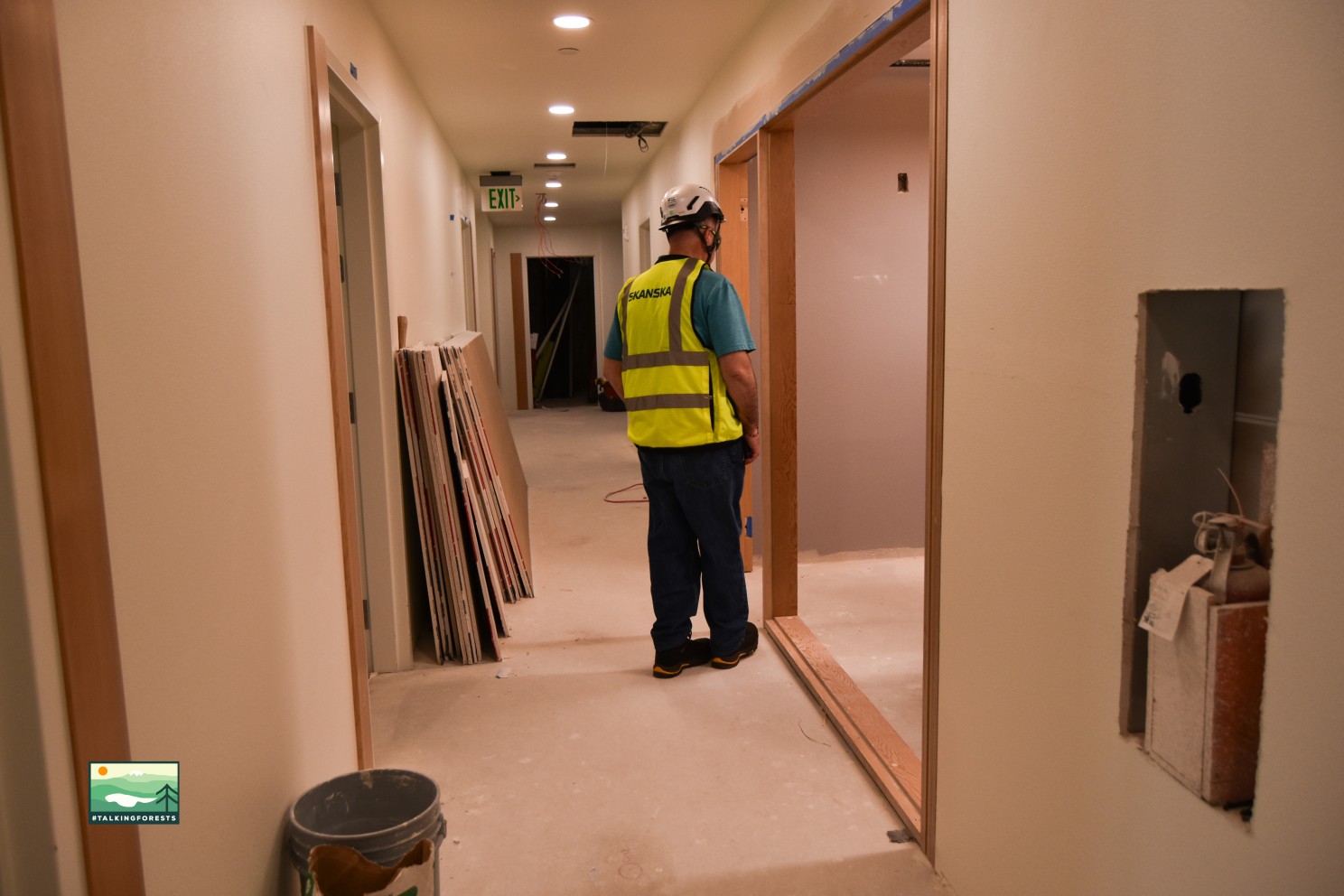
The core mission of the Julia West House is to provide permanent supportive housing for houseless elders and BIPOC individuals earning 30% or less of the area median income (AMI). Recent data indicates that approximately a quarter of Portland's houseless population consists of adults aged 55 and over, with communities of color disproportionately affected. The project is a 100% PSH community specifically intended for older adults aged 55+, with a target of 45% of residents identifying as BIPOC.
Beyond stable housing, residents will receive comprehensive support through robust resident services and case management. Amenities include two community spaces, a community kitchen, a rooftop patio, laundry facilities, and secure bike parking, rooms, alongside onsite offices for property management, resident services, and case management.
Key partnerships underpin the success of this supportive model. Permanent supportive case management services will be provided by the Northwest Pilot Project (NWPP) and the Native American Rehabilitation Association of the Northwest (NARA), while resident services will be facilitated by Community for Positive Aging. These organizations will collaborate with Multnomah County’s Joint Office of Homeless Services (JOHS) Coordinated Access system to identify and transition future residents into the building.
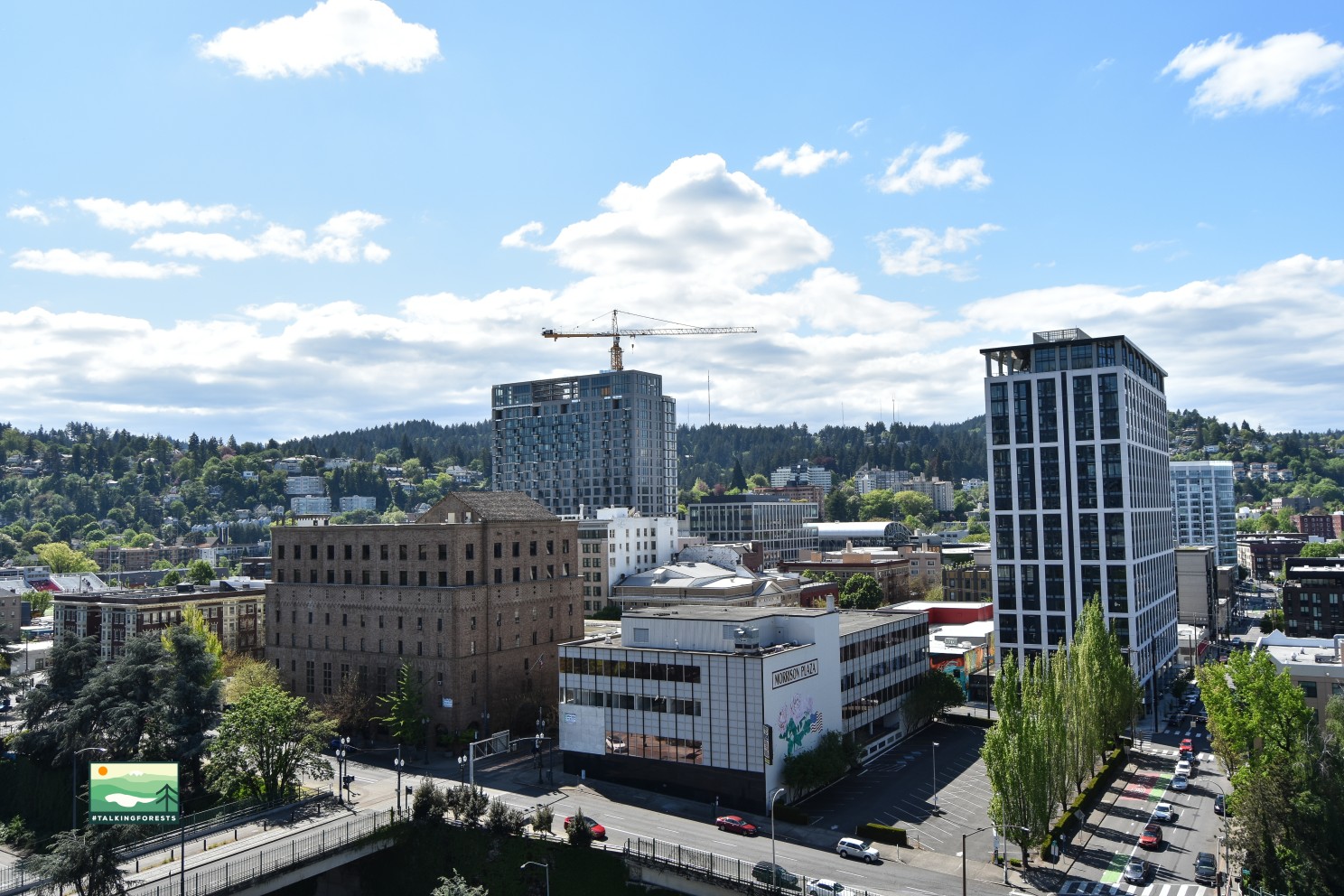
NWPP has a 50-year history of connecting low-income seniors in Multnomah County with safe, permanent, and affordable rental housing, stabilizing housing for about 600 seniors annually. NARA, an Indian-owned and operated non-profit founded in 1970, offers a wide array of culturally specific and integrated clinical services, along with supportive services designed to promote "wellness of spirit, body, mind, and culture" for their community. Community for Positive Aging, founded as Hollywood Senior Center in 1973, is an age-positive hub providing no-cost, donation-based services and resources that empower elders to learn, connect, and grow.
The journey of Julia West House began with Community Development Partners (CDP) purchasing the site from First Presbyterian Church, which had held the property for a development aligned with their community service values. The project's approximate $58 million total development cost is supported by a diverse funding structure. Funding for the project includes public and private sources, 4% Low Income Housing Tax Credit (LIHTC) allocation with equity investment by Aegon, rental assistance from the Oregon Housing and Community Services (OHCS) and the JOHS, and a grant from the Portland Clean Energy Community Benefits Fund (PCEF). Construction financing is being provided by Bank of America, USDA Wood Innovations, and permanent financing by Citibank.
Construction began by Walsh Construction Co. in February 2024. Demolition of an existing parking lot and a vacant building previously used by First Presbyterian Church kicked off the project, and it's scheduled for completion in September 2025.
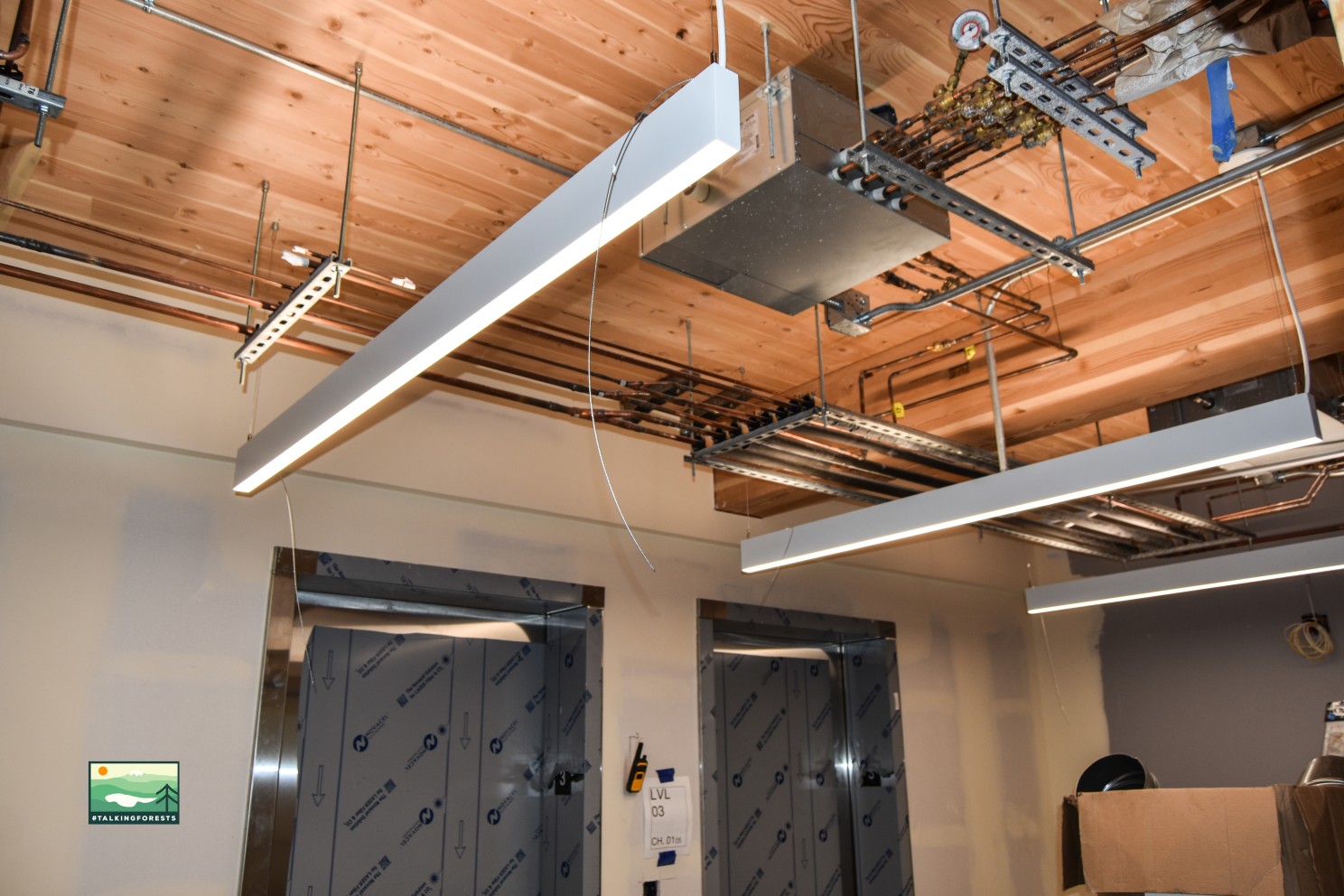
The site presented challenges due to its small footprint (0.11 acres), requiring precise execution. Pacific Foundation, a contributor to the project, highlighted their scope of work, which includes "soldier piles, shoring, tiebacks as well as CFA shafts to support the tower crane during construction," noting that "CFA (Continuous Flight Auger) Shafts minimize onsite spoils and material handling on this very small project site". This meticulous approach is vital when working in tight urban quarters with large equipment.
“Building a 12-story structure on a 5,000 SF lot in downtown Portland required precise coordination and communication,” said Ed Sloop, Senior Project Manager and Director of Innovation at Walsh Construction Co.. “There was virtually no laydown area, so every delivery had to be just-in-time. That level of planning and efficiency was critical not just for the schedule, but to minimize disruption to the neighborhood. The compact site really showcased how mass timber and smart construction logistics can succeed in a dense urban environment.” - Walsh Construction
“Julia West House exemplifies what’s possible when we challenge the status quo in housing development," said Eric Paine, CEO of Community Development Partners. "By uniting sustainable mass timber construction with comprehensive supportive services, we’re not only addressing Portland’s houselessness crisis, but setting a new standard for what innovative, affordable housing can look like. This project reflects the kind of forward-thinking, values-driven development CDP is proud to lead.” - Community Development Partners, Developer
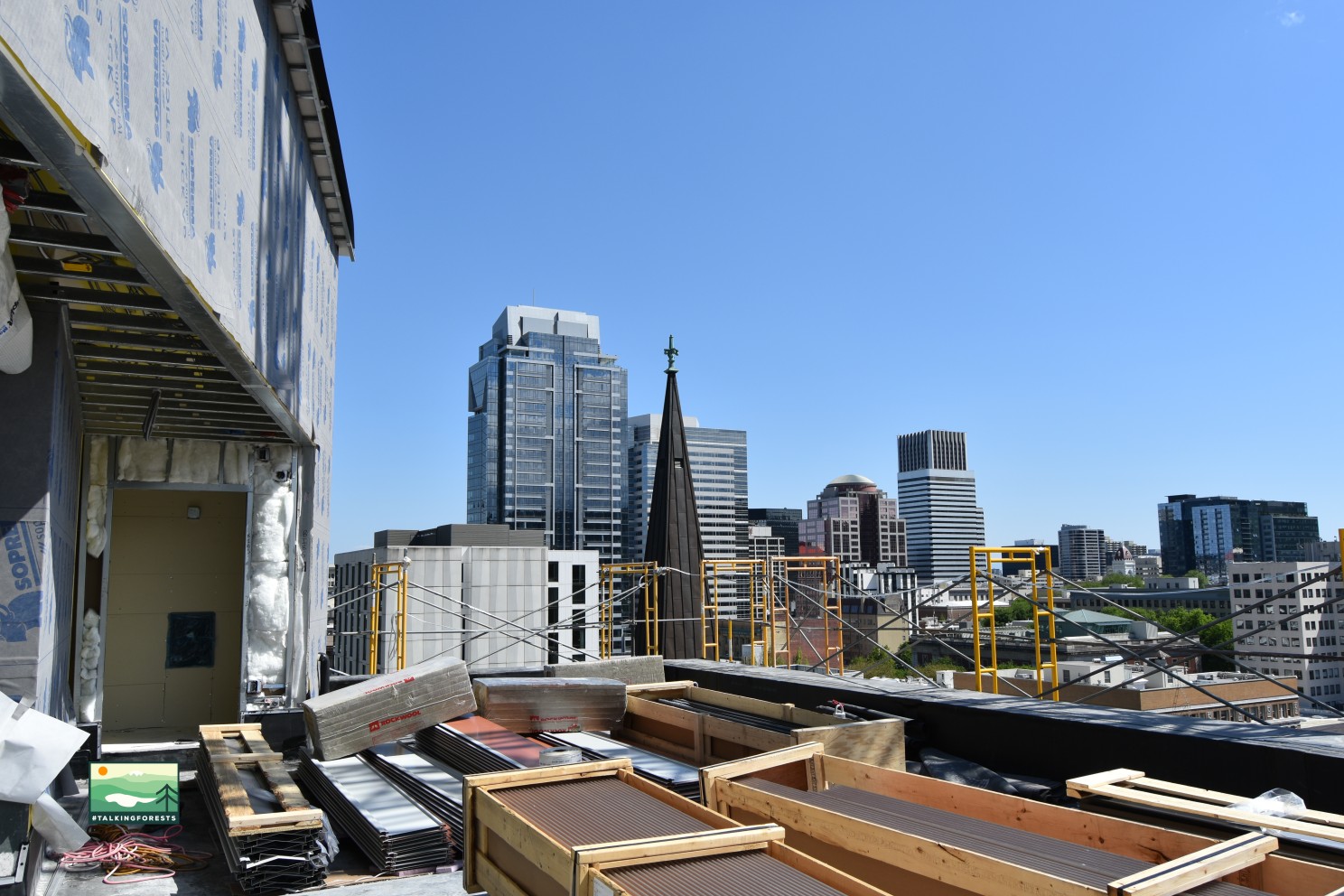
The Julia West House demonstrates what can be achieved when innovation, sustainability, and social responsibility converge. It’s more than just a building; it’s a commitment to providing dignity, stability, and community for those who need it most, all within a groundbreaking Mass Timber structure that sets a new standard for urban development.
Candra Burns's Editor Note: Being able to visit this in person was amazing. It put the tall building into perspective for me, in such a short space. I have waited a decade to see a mass timber buidling this tall in the PNW. I was even more happy to see it going to people in the community that may have been at a disadvantage. The roof top common space with laundry and a community resource guide will be game changing for people with trauma informed needs. Thank you for the tour Urban Land Institute!
Construction Type: Type IV-B
Anticipated Completion: September 2025
Total Development Cost: Approximately $58.6 Million
Project Size: 51,295 sq. ft. (Also reported as 51,388 sq. ft. and 59,000 sq. ft.)
Number of Stories: 12 Number of Units: 90 (60 studios, 30 one-bedroom)
Sustainability Certifications: National Green Building Standard and Energy Star Certified (Targeting)
Building System/Material Types: Mass Timber, Cross-Laminated Timber (CLT), Glue-Laminated Timber (GLT or glulam), Timber-Frame / Post and Beam, Hybrid (wood with steel or concrete)
1. What is the Julia West House and who will it serve? The Julia West House is a 12-story, mass timber supportive housing development in Downtown Portland. It will provide 90 permanent supportive housing units specifically for adults aged 55 and older who are experiencing houselessness, with a focus on BIPOC individuals earning 30% or less of the area median income (AMI).
2. Why was mass timber chosen for this project? Mass timber, specifically cross-laminated timber (CLT), was selected for its low embodied carbon, biophilic design benefits, and faster construction schedule compared to concrete or steel. It also supports the project’s sustainability goals, targeting National Green Building Standard and Energy Star certifications.
3. What supportive services will residents have access to? Residents will benefit from onsite case management and resident services provided by the Northwest Pilot Project (NWPP), Native American Rehabilitation Association (NARA), and Community for Positive Aging (CfPA). These services include wellness support, housing stability programs, community activities, and culturally specific care.
4. Who is developing and funding the Julia West House? The project is led by Community Development Partners (CDP) and funded through a mix of public and private sources, including Low Income Housing Tax Credits (LIHTC), rental assistance from OHCS and JOHS, a grant from the Portland Clean Energy Community Benefits Fund, and financing from Bank of America and Citibank.
5. When will the Julia West House be completed and where is it located? Construction began in February 2024 and is scheduled for completion in September 2025. The building is located in Portland’s West End, on a compact 0.11-acre site previously owned by First Presbyterian Church.
.png)
Lead mass timber projects with confidence — and leave delays, redesigns, and budget blowups behind.
✅ Solve early-stage design, sourcing, insurance, permitting, code & cost hurdles before they derail your project.
✅ Find technical answers on design, detailing, procurement, embodied carbon ROI, hybrid systems & more.
✅ Build relationships with developers, GCs, architects, and engineers shaping mass timber’s future.
Get your ticket— and get the insights, skills, and network to deliver mass timber projects successfully.


%201.jpg)
.png)
